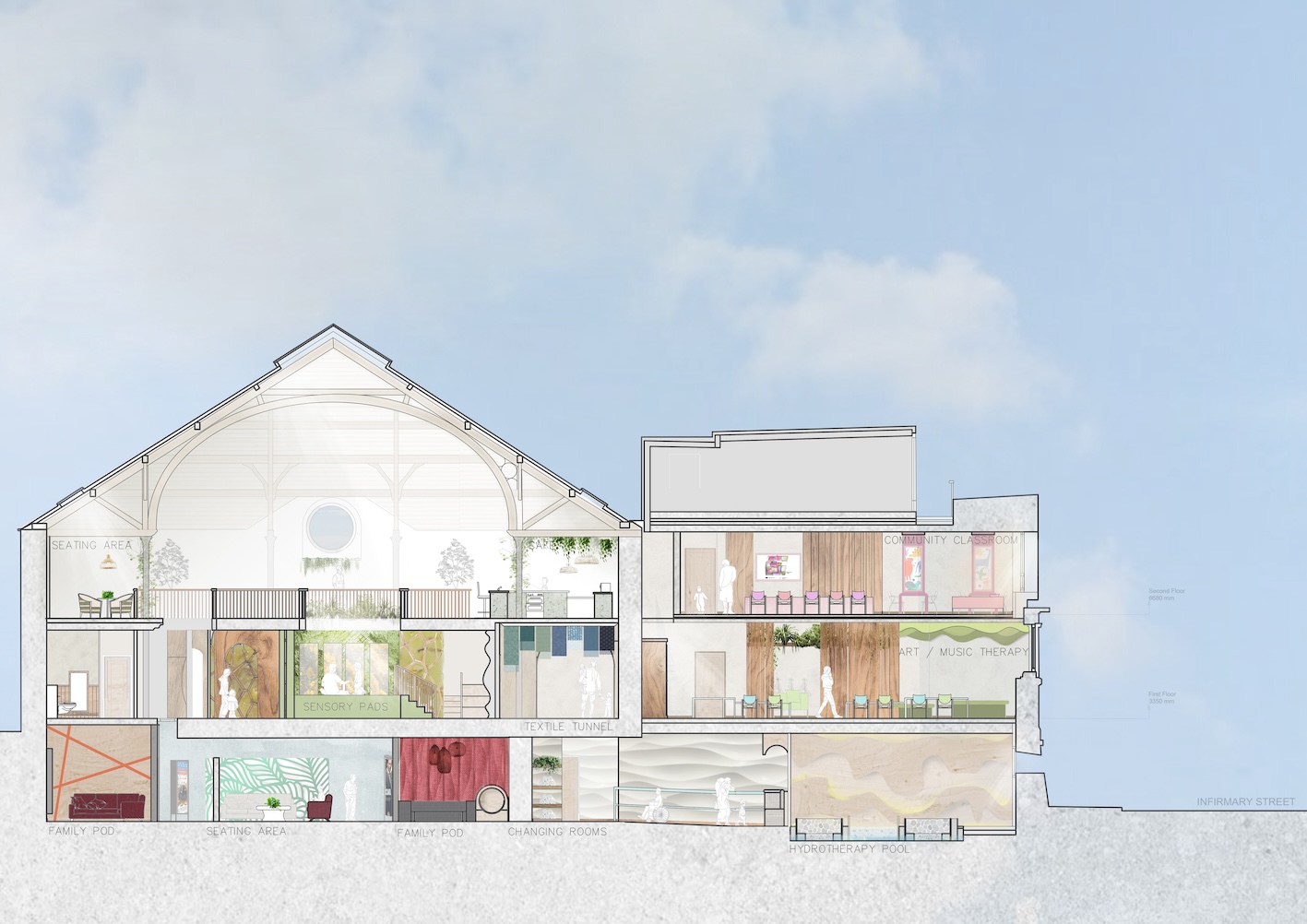

“Deep Dive” creates a welcoming space for families, offering a interactive experience designed to meet the unique sensory needs of both children and adults with autism in Edinburgh. Located in the former Infirmary Street Baths. This reimagined community asset helps families relax without judgment, connect with others, and build a supportive community in a safe environment
Autistic individuals often face sensory challenges, both hyper- and hypo sensitive. The experience centre offers tailored, calming environments to support well-being, with benefits extending to families through ongoing support and care.
Embracing biophilic design, the space brings natural elements indoors, inspired by local surroundings, to create a calming atmosphere that reduces stress and enhances user experience. It supports emotional exploration through innovative wet and dry sensory environments, blending historic architecture with modern technology.
With strong transport links and a central city location, “Deep Dive” builds on the building’s past as a public health asset, evolving it into a hub for connection, support, and sensory relief. This unique environment offers families a welcoming place to return to, helping them navigate the often-overwhelming world with comfort and community.
Address: 10 Infirmary St, Edinburgh EH1 1LT, Dovecot studio
Listing: B listed. Listed on 11 January 1989
Year of design: 1885
Original type: Public Baths
Designer: Architect Robert Morham
Year of Refurbishment: 2009













Today the world is connected especially through transport, social media and social groups allowing for people to build connections, make friends and socialise. Unfortunately, this isn’t the case for many people with disabilities due to social isolation, judgement, and accessibility. When living with learning disabilities being in an over stimulation environment can not only cause distress but the fear of not being like the public can have an impact on their social interactions.
A survey taken in 2019 by the SCLD found 52% of the individuals said they occasionally sometimes or often feel lonely. This is due to not being able to fully participate in society and not feel welcome. Individuals with disabilities face may physical and emotional barriers. Often families miss out on spending quality time together in public settings due to the general public’s ignorance and misunderstanding of a situation.































